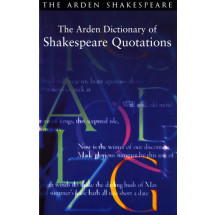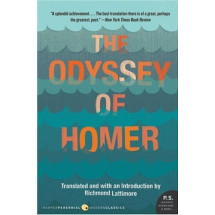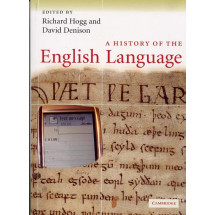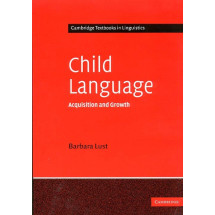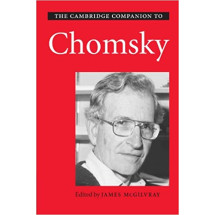From Longman's new Cultural Editions Series, King Lear, edited by Claire McEachern, presents the play along with a critical introduction and contextual materials from the era of Shakespeare. Handsomely produced and affordably priced, the Longman Cultural Editions,D> series presents King Lear in provocative and illuminating contexts-cultural, critical, and literary. This edition incorporates contemporary contexts that include source documents, intellectual and textual history as well as receptions of and reactions to the play from the seventeenth to the twentieth century. Readers interested in Shakespeare's play King Lear.
List of Illustrations vii
About Longman Cultural Editions ix
About This Edition xi
Introduction xiv
Table of Dates xxii
King Lear 1
The Texts of King Lear 134
Contexts 139
Shakespeare's Narrative and Dramatic Sources 141
RAPHAEL HOLINSHED, from The Second Booke of the Historie of England?in The First and Second Volumes of Chronicles (1587) 144
From The True Chronicle History of King Leir and his three daughters . . . As it hath beene divers and sundry times lately acted (1605) 147
SIR PHILIP SIDNEY, from The Countesse of Pembrokes Arcadia (1590) 154
The State 158
From An Exhortation Concerning Good Order and Obedience to Rulers and Magistrates (1570) 160
CHARLES MERBURY, from A Brief Discourse of Royal Monarchie, as of the Best Common Weale (1581) 162
SIR THOMAS SMITH, from De Republica Anglorum (1583) 163
JAMES VI OF SCOTLAND, from The Trew Law of Free Monarchies (1599) 164
JAMES I OF ENGLAND, from A Speech [. . .] delivered in the Upper House of Parliament on Monday the 19 March 1604, being the first day of the First Parliament 167
THOMAS SACKVILLE AND THOMAS NORTON, from Gorbuduc (1562) 169
SAMUEL HARSNETT, from A Declaration of Egregious Popish Impostures (1603) 173
The Household 176
MICHEL DE MONTAIGNE, from If the Affection of Fathers for Their Children?from The Essays (London, 1603) 179
WILLIAM GOUGE, from Of Domesticall Duties (1622) 184
JOSEPH SWETNAM, from The Arraignment of Lewde, Idle, Forward, and Unconstant Women (1615) 191
JANE ANGER, from Her Protection for Women (1589) 193
Fools and Folly 194
ERASMUS, from A Letter to Martin Dorp (1515) 195
ROBERT ARMIN, from Foole upon Foole (1600) 196
WILLIAM HARRISON, from If the Ancient Religion Used in Albion?(1587) 201 JEAN CALVIN, from Institutes of the Christian Religion (1536) 205 RICHARD HOOKER, from Of the Laws of Ecclesiastical Polity (1593) 209 THOMAS HOBBES, from Leviathan (1651) 215 ST. AUGUSTINE, from The City of God, Book XIX (c. 413?27) 218
Early Readings and Rewritings 220
NAHUM TATE, from The History of King Lear (1681) 222
LEWIS THEOBALD, from The Censor (1715) 230
SAMUEL JOHNSON, from Notes on King Learn in The Plays of William Shakespeare (London, 1765) 233
GEORGE COLMAN, from the Preface to The History of King Lear (1768) 236
CHARLES LAMB, from On the Tragedies of Shakespeare, considered with reference to their fitness for stage representation?(1810) 238
CHARLES LAMB, from King Learn in Tales from Shakespeare (1807) 241
WILLIAM HAZLITT, from The Characters of Shakespear's Plays (1818) 247
SAMUEL TAYLOR COLERIDGE, from Lectures on Shakespeare (1818) 251
JOHN KEATS, On Sitting Down to Read King Lear Once Again?(1818) 254
A. C. BRADLEY, from Shakespearean Tragedy: Lectures on Hamlet, Othello, King Lear and Macbeth (1904) 255
Adaptations of King Lear 259
Further Reading 261
Claire McEachern is Professor of English at the University of California, Los Angeles. Her other editions of Shakespeare include the Arden 3 edition ofMuch Ado About Nothing (2006);1&2 Henry IV,Henry V,King John andAll's Well that Ends Well (Pelican, 2001). She is also the author or editor of theCambridge Companion to Shakespearean Tragedy (CUP, 2004);Religion and Culture in the English Renaissance (CUP, 1997), and The Poetics of English Nationhood, 1590-1612 (CUP, 2006).



